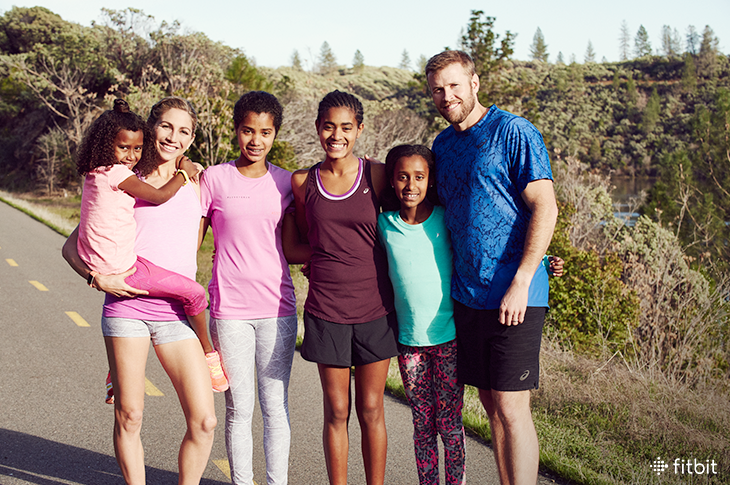
I started coaching my two oldest daughters, Hana and Mia, a little over a year ago. When they came to me and said they wanted to run, I had to help. I couldn’t stand back and watch them improperly train when I’ve invested my life in learning proper techniques.
So I am involved, and I do coach them, and it is tricky, but it’s also an amazing way to bond. I feel closer to my kids when I’m coaching them and I think they feel closer to me. The experience has helped us better relate to each other.
When I’m coaching my kids, I often think about something the father of Andrew Luck (a quarterback for the Indianapolis Colts) once said in an interview: “You can have a lot of coaches, but you only have one dad.” That is so true and why I always prioritize my “dad hat” over my “coaching hat.” I haven’t been perfect by any stretch, but having been on both sides of the parent/coach-kid relationship gives me a unique perspective. Here are the biggest lessons I’ve learned in coaching my kids thus far.
Coaching Your Own Kids: 101
Let the desire come from them. I actually learned this from my dad. When I was young, he would call out the running talent he saw in me, but never pressured me to pursue it. He waited years until I had the internal drive to start running for myself. I am so grateful my dad took this approach; without the internal drive to run I wouldn’t have made it through the many hard times I faced in my 20-year career.
Sara has a fun and very tangible way to foster this motivation in our kids. She once took Mia to the track to do an interval workout. But instead of telling her exactly what I had prescribed—12 laps of 200 meters hard, 200 meters easy—she just told her that she could run 200 meters hard, 200 meters easy for as long as she wanted. Mia ended up running even further than I had asked, going for a full 30 minutes and covering approximately 4 miles.
I think a lot of parents are afraid to give their kids control over how they train. But if you do, you might be surprised to find that it empowers kids to do even more than you thought possible.
Learn when to push and when to ease up. This is hard for me, because I’m naturally a push-to-extremes kind of guy. I’ve had to learn to read my kids. In fact, it’s something I’m still learning to do. Here’s what I’ve found: Giving your kids the freedom to choose their own destiny in a moment of tiredness is empowering. I try to act as a guide, by helping them clearly see what their decisions will yield, but leave the final decision up to them.
For instance, if we are doing a set of 400-meter repeats and one of my daughters tells me that she’s tired, I’ll explain the purpose of the workout and why pushing through feelings of fatigue can be helpful, but then let her decide whether to carry on.
Shower your kids with encouragement. This is the most important lesson I’ve learned in coaching my kids. That’s because my initial reaction is to address any mistakes my kids make on the athletic field—whether it’s soccer or running. But now I’m careful in how I approach the topic. I try to let them know all the things they did right and why I’m proud of them before I suggest areas of improvement. Sometimes I’ll even wait until the practice following a competition so they can soak in their successes and not dwell on all the things they need to fix.
I hope this advice is both helpful and encouraging. I know coaching your kids can sometimes feel like a juggling act, but it’s worth it if you’re able to connect with them in a way that you otherwise wouldn’t. Happy coaching/parenting!
This information is for educational purposes only and is not intended as a substitute for medical diagnosis or treatment. You should not use this information to diagnose or treat a health problem or condition. Always check with your doctor before changing your diet, altering your sleep habits, taking supplements, or starting a new fitness routine.

Nice review that even grandparents can get pointers from. Inspirational article.